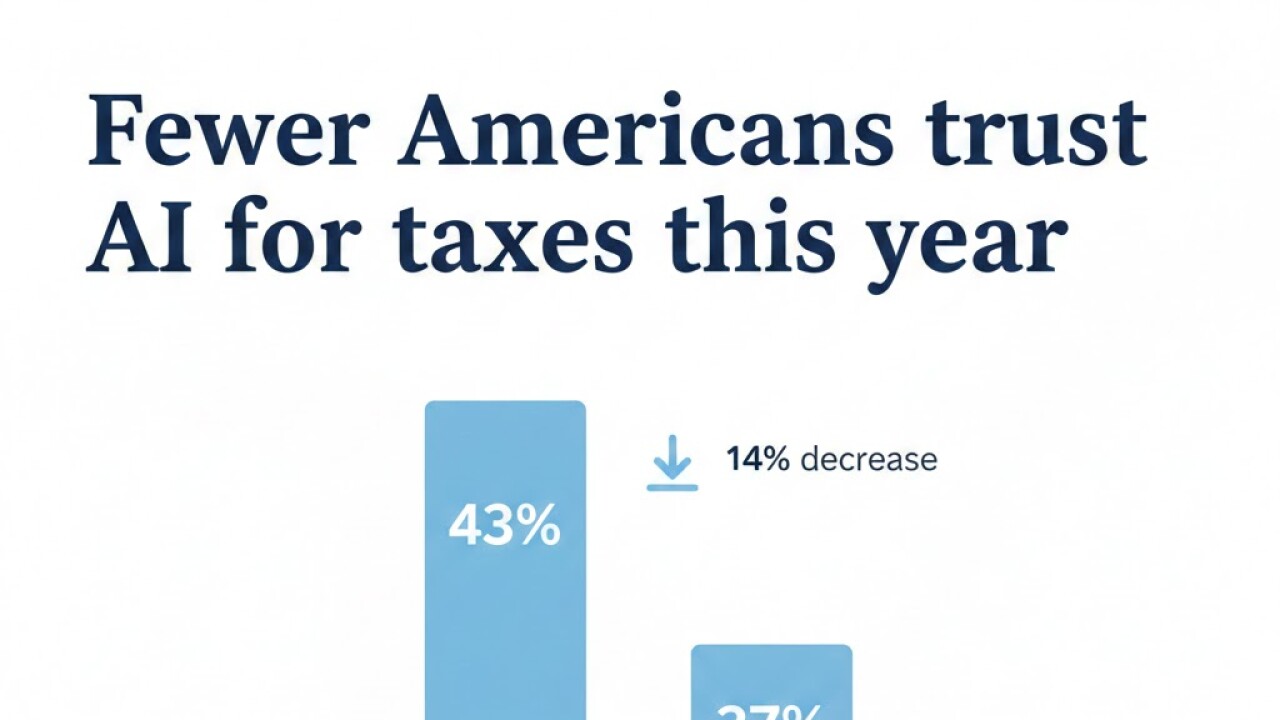by Melissa Klein
With the October deadline looming for the selection of members for the newly formed Public Company Accounting Oversight Board, speculation has run rampant among members of the profession and the media regarding who will chair the watchdog body, whose creation was mandated by the Sarbanes-Oxley Act of 2002.
At press time, former Federal Reserve chairman Paul A. Volcker, rumored as the Securities and Exchange Commission favorite for the post, had rejected the job, leaving the question open as to who would head the independent board.
Earlier this year, Volcker led a fruitless effort to save Arthur Andersen by rebuilding it as an audit-only firm. According to media reports, Volcker may have passed up the position because of a requirement that the board members give up all other employment and business and professional activities to become independent. Volcker serves as the chair of the London-based International Accounting Standards Committee Foundation, the oversight body of the International Accounting Standards Board.
A spokeswoman from Volcker’s office said he had no comment.
The Post reported that Volcker’s pass left TIAA-CREF chairman and chief executive John H. Biggs, who served on the now-defunct Public Oversight Board, at the top of the list of front runners for the job. TIAA-CREF executives had no comment.
The SEC, which will work with the Federal Reserve and the Treasury to make the final selection of the five board members, also declined comment on the matter.
Prior to the news that Volcker turned down the job, many members of the profession said that they liked the former Fed chairman for the post.
"I think that Mr. Volcker is a fine choice," said former SEC chairman David Ruder, a law professor at Northwestern University. "He has the prominence and the energy and the talent to handle it. We’d be lucky if he’d agree to do it."
Asked who he would like to see on the board if Volcker passes, Ruder named J. Michael Cook, former chief executive of Deloitte & Touche, and National Association of Securities Dealers vice chair Mary Shapiro, who have both been named as a possible candidates, would be good choices. Ruder also mentioned NASD executive vice president of Regulatory Policy & Programs Elisse Walters.
"It’s up to the commissioners of the SEC to make up their minds," said former SEC chairman Arthur Levitt. "I think he’d [Volcker] be well suited for the job." Levitt, whose name has also been floated as a possible candidate for the post, said that he is not a contender for the chairman’s spot.
"I certainly believe that Mr. Volcker would be an outstanding chairman and it’s easy to understand why he’s the first choice," said Douglass Car-michael, an accounting professor at Baruch College, in New York and director of the college’s Center for Integrity in Financial Reporting. "He has all the qualities that are needed for a chairman. The other people I’d like to see on the board would be people [who are] knowledgeable about auditing, and therefore, there’d be CPAs in the two slots that are reserved for CPAs."
Carmichael added, "I’d like to see people who have demonstrated an interest in the public interest rather than parochial interest of the larger firms and the American Institute of CPAs. An outstanding example of that would be [former SEC chief accountant] Lynn Turner, former SEC chief accountant Walter Scheutze and former chief accountant Michael Sutton."
But Volcker wasn’t everyone’s top choice.
"Personally, I think it would be better to have somebody a little younger, with a little more appreciation for the issues involved," said Dennis Beresford, former chairman of the Financial Accounting Standards Board and an accounting professor at the University of Georgia.
"He’s [Volcker] a wonderful person and he has had some experience with the profession in connection with the International Accounting Standards Board and Andersen, but the issues of this new group are far broader than that," he said.
Beresford, who has also been cited by the press as a possible board member, said, "I didn’t apply, I haven’t been contacted and I’m not interested."
"I’d like to have somebody who has more experience with issues, such as quality control of accounting firms, independence issues and audit standards," Beresford said. "The board will be dealing with the issues at a fairly high level, but I expect also a fairly detailed level, too. I hope the members will be able to get into a fair degree of detail," he continued.
"We need someone who will devote 120 percent of their time. At least initially, a lot of time will be spent ramping up, figuring out staff and developing operating procedures. It will be a tremendous effort to get this thing started."
Among the names floated as possible candidates, Beresford said his pick would be Cook. "I think Mike Cook would be super. He’d be an excellent chairman, an excellent member. He’d probably be my No. 1 choice if he’s interested and available."
Choosing the board’s leadership may pose a major challenge for the SEC, noted Ruder, because of a provision in the Sarbanes-Oxley Act that requires members to relinquish all other employment and business and professional activities. "The legislation creates substantial problems because its forces the individuals that serve to relinquish all other employment and to become completely independent. To get high-prestige people to do that asking a lot," said Ruder, who served as the SEC’s chair from 1987 to 1989. "The board is going to be a very complex organization. The task of starting it from scratch is an enormous problem. From my point of view, it would be useful to have Volcker, who has strong administrative abilities and a strong reputation as a chairman, and four other individuals who also have strong administrative talents. It [the board] ought to be organized in such a way that the board members are utilized in an administrative way, rather than just having them be policy makers."
"This is a board requiring some division of labor. It’s important that the people [who are] appointed be able to function effectively in that regard, as well as policy making," Ruder added. "A large administrative task needs to be accomplished in terms of the registration of accounting firms and examining the registration records."
Ruder concluded, "There’s another task, which I describe as rulemaking: the responsibility for creating quality standards and auditing standards directly or through a delegation process. Someone has to supervise that. There’s also a periodic examination of the firms to see that they’re complying with the rules [that are] created, and an investigation and discipline function that has to be carried out."
The SEC has received more than 350 applications for the board, spokeswoman Christi Harlan said. Under the law that created the PCAOB, its members, only two of whom may be CPAs, must be chosen 90 days after the July 30 signing, and the board must be up and running in 270 days, or by the end of April 2003.
"Chief accountant Bob Herdman has indicated that there is contemplation of having offices in both Washington and New York, but nothing has been decided, one way or another," said Harlan. The SEC hasn’t said, yet, whether it will announce the chairman as soon as the post is filled, or wait until all of the board members have been selected.
Board members will serve staggered five-year terms. The chairman cannot have practiced as an accountant for five years.
Accounting firms that audit public companies will have to register with the board, which will have the power to set auditing, ethics, independence and quality standards. The board will also have the power to inspect, investigate and discipline audit firms.
The inspection of firms is supposed to begin six months after the board is up and running, with firms that provide audit reports for more than 100 issuers being subject to annual reviews. Firms that provide audits for fewer than 100 issuers will be inspected at least once every three years.
Start-up funding for the board’s first fiscal year will come from appropriations to the commission for fiscal 2003. After that, the board will be funded by annual and registration fees paid by the firms that it oversees.





